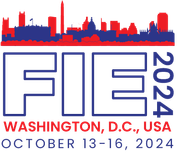Amplifying Voices Through Animaker Animation: Results From a Longitudinal Study With Latino/a/x Engineering Students
The special session will delve into the theoretical foundations of Pláticas and Testimonios [3-5], and the importance of amplifying the voices of minoritized populations through multimodal tools [6]. Drawing from the relevant literature on Chicana Feminist Epistemology, discussions in this session will explore the significance of Pláticas and Testimonios as means of amplifying students' voices and experiences. As a data collection method, Pláticas and Testimonios offer a robust means for developing mutual trust between researcher and participant, and become an instrumental method to engage in research practices that unpack experiences of marginalization, vulnerabilities, and lived experiences. In addition, multimodality will be explored in terms of research and pedagogical purposes. Multimodality involves multiple representation (i.e., symbols, equations, visual aids, schematics, writing, simulations) to communicate sociopolitical complexities that impact marginalized populations [6]. Through the analysis of Animaker videos created from research data, participants in this session will examine the practical application of these methodologies and the significance of multimodal literacies.

